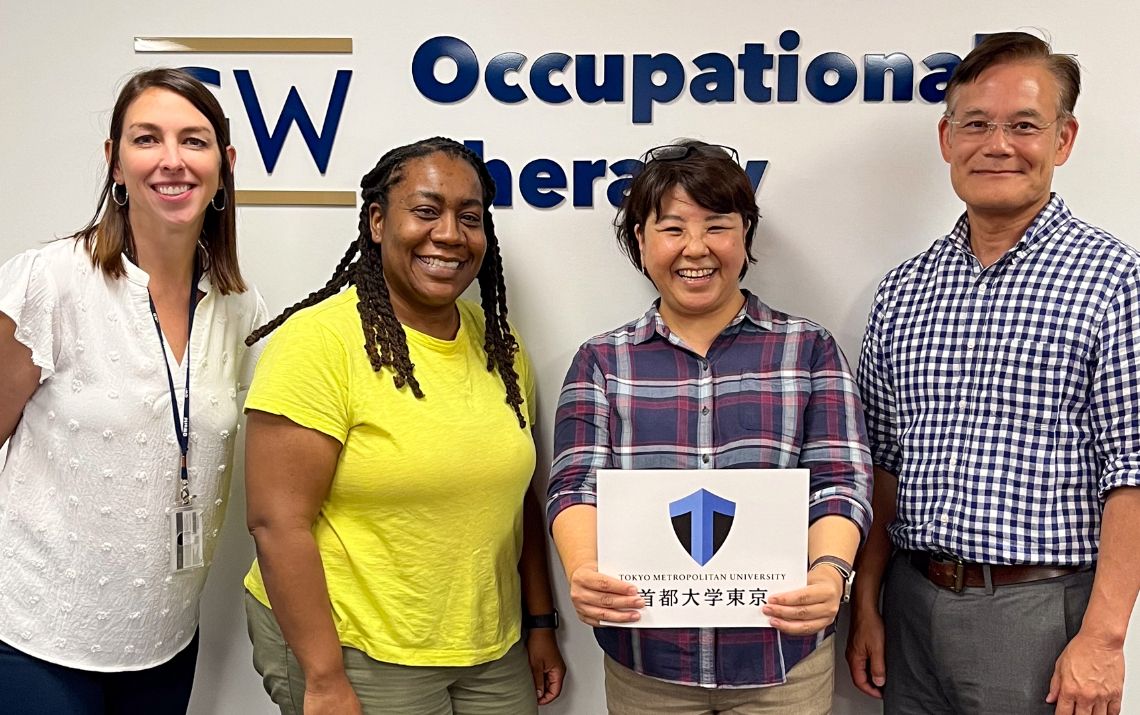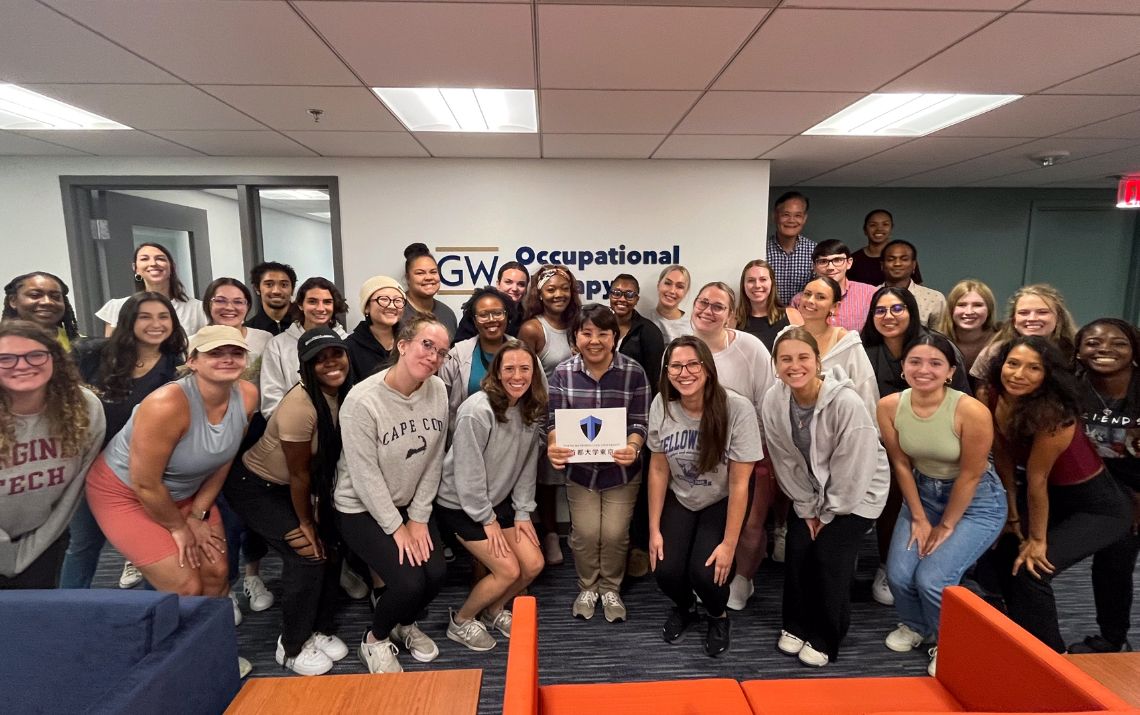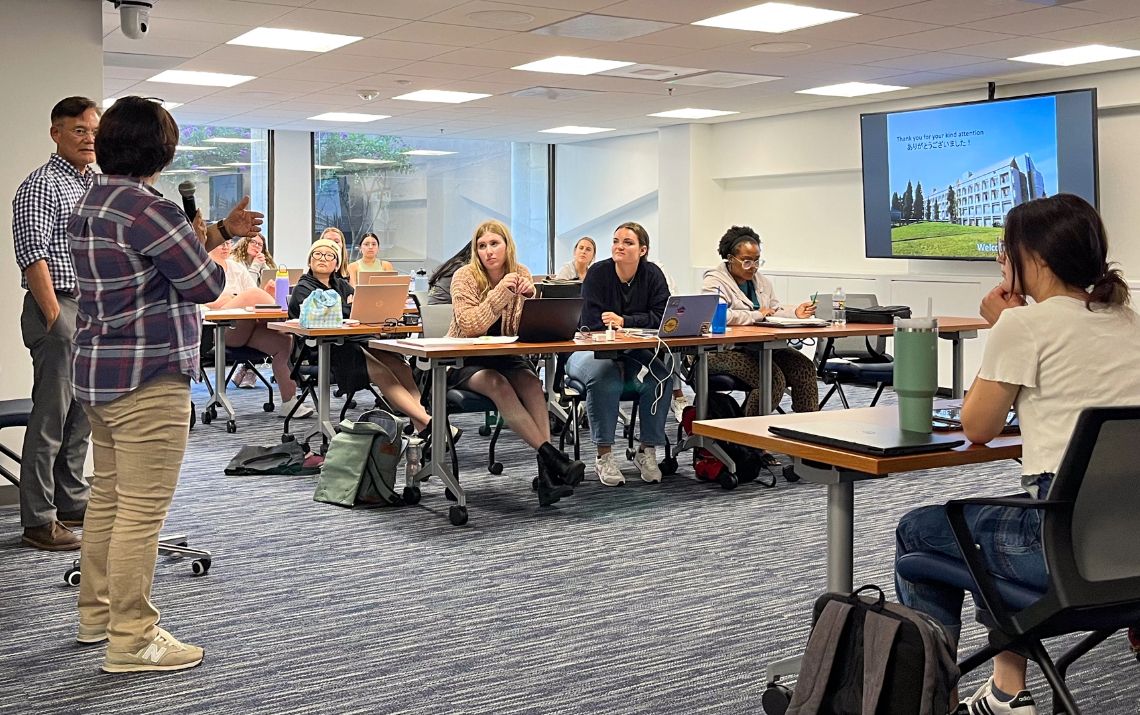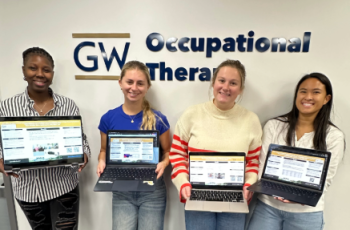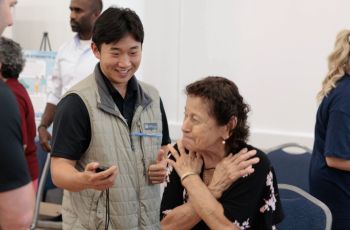Yuko Ito, PhD, OT, a professor at Tokyo Metropolitan University in Japan sat on a leadership panel and led lectures on cultural differences in health care during the first week of classes for students in the occupational therapy program and physical therapy program.
On August 21, 2023, Ito sat alongside members from the American Occupational Therapy Association and the American Occupational Therapy Foundation for the Leadership and Management course. The following day, Tuesday, August 22, Ito conducted a lecture for the Human Occupations I course on the history of occupational therapy in Japan, as well as present day practices. Students in the physical therapy program received a lecture on autism spectrum disorder, engagement, and culture, on Thursday August 24.
Ito specializes in community-based practice, sensory integration, and assistive technology for children with disabilities. Ito is also the Director of the Japanese Academy of Sensory Integration and fellow of the Japanese Occupational Therapy Association, the Tokyo Occupational Therapy Association, and the Japanese Society for Occupational Therapy in Pediatrics.
“Dr. Ito was able to give both myself and the students a thorough understanding of what occupational therapy practices look like in Japan including the history and what populations OTs treat in various settings and some of the barriers they face in clinical practice,” said Sarah Doerrer, PhD, OTR/L, CHT, CLT.
When asked by the panel about the challenges faced as an occupational therapist, Ito discussed issues of translation and education surrounding the profession. “In Japanese, occupational therapy translates to “Sagyo- Ryoho”. Sagyo means “Work,” so it is very difficult to understand the meaning of Sagyo,” explained Ito.
“I really enjoyed understanding the cultural differences between what an occupation meant in the United States versus Japan. Yesterday in class, we talked about what occupation means and a lot of times it was a job or a task, but in Japan it was more of the performance of an individual in society… It is very artistic, whereas here, it's very medical… to get you to function to promote society and not your individual self,” said first-year OTD student, Justine Williams.
Reflecting on the cultural differences, first-year OTD student, Rebecca Warren said, “Therapy sessions in Japan involve painting or pottery, and the understanding about occupation is that it has to have purpose and value for you. It can't just be a daily activity.”
“Dr. Ito provided an amazing perspective on OT methods, laws, and needs in Japan. When students have that global perspective, they are better equipped to engage local, national, and global partners to advance occupational therapists’ role in addressing unmet social needs and eliminating health disparities,” said program director and professor, Roger Ideishi, JD, OT/L, FAOTA.
Dr. Ito and GW OT program director Dr. Roger Ideishi exchanged visits to and from Japan between 2015-2019 and have made plans to continue this tradition post-COVID. Inspired by Ideishi’s work in creating sensory friendly spaces for children with autism, Ito stated, “I would like to do sensory friendly work in Japan, too. I am now implementing it with my students, community stakeholders, and several art specialists.”
